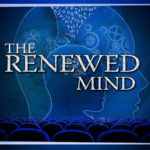A truism, according to one dictionary definition, is an undoubted or self-evident truth, especially one too obvious for mention. Another dictionary says it this way: a truism is a statement that is so obviously true that it is almost not worth saying. Yet we need to mention them, to say them out loud, particularly in our day. Throughout my career as a historian, I have thought about which self-evident truths might apply to my life and teaching. I’ve come up with a list of what I refer to as Snyderian Truisms. It’s my list and others may have other truisms, but I offer mine for consideration.
The Snyderian Truisms
# 2: If you fill your mind with rot …
 If you fill your mind with rot, don’t be surprised if you turn out rotten.
If you fill your mind with rot, don’t be surprised if you turn out rotten.
Filling our minds with ungodly ideas will lead to the depraved mind that Paul talks about in Romans 1. We can actually get to the point where we actively try to suppress truth. The ultimate consequence of following such a path is to experience the wrath of God.
# 3: Ignorance can be corrected, but …
 Ignorance can be corrected, but apathy makes learning impossible.
Ignorance can be corrected, but apathy makes learning impossible.
The apostle Paul acted in ignorance until his Damascus Road experience. When he preached to philosophers on Mars Hill, he said that God had overlooked past ignorance and now calls on everyone to repent. Yet if someone doesn’t care to know God or His ways, there is little hope of getting through to such a person.
# 4: Personality and character are not the same …
 Personality and character are not the same: the first arrives with you at birth; the second is a matter of choice and requires work on your part.
Personality and character are not the same: the first arrives with you at birth; the second is a matter of choice and requires work on your part.
Personality is whether someone is naturally extroverted or introverted, funny or serious, etc. There is no morality attached to one’s personality. Character, however, has to do with moral choices made throughout life that determine whether one is honest, virtuous, and has integrity.
# 5: The Lord is always more interested in …
 The Lord is always more interested in developing character than providing a quick fix.
The Lord is always more interested in developing character than providing a quick fix.
We don’t like to suffer. We like quick, easy solutions to every problem that comes along in life. God, though, doesn’t offer shortcuts. We are to rejoice in trials because in the midst of them, we will develop the kind of character God seeks, that we may become mature people who exhibit the love of Christ despite our trials.
# 6: Bitterness may make you feel good …
 Bitterness may make you feel good temporarily, but it leads to personal destruction.
Bitterness may make you feel good temporarily, but it leads to personal destruction.
Bitterness becomes a root that springs up and defiles many because the ripples from that bitterness end up touching the lives of everyone around us. The apostle James says bitterness is nothing to boast about; Paul explicitly directs Christians to get rid of it entirely. If we don’t, it will eat away at our lives and destroy us spiritually.
# 7: Value-neutral education is a myth …
 Value-neutral education is a myth; everyone teaches from a distinctive worldview.
Value-neutral education is a myth; everyone teaches from a distinctive worldview.
Values are always being taught in education. Whenever anyone says what he is teaching is neutral, that, in itself, is a value, stating that one must remain neutral. Christians, however, cannot be neutral. Our understanding of the Biblical worldview should naturally inform what we teach. This should never be done as pure indoctrination; thinking through God’s principles will help us grasp truth.
# 8: A compromised principle leads to …
 A compromised principle leads to unrighteousness, but a principled compromise is a step closer to the principle’s ideal.
A compromised principle leads to unrighteousness, but a principled compromise is a step closer to the principle’s ideal.
Principles are general truths from which many subordinate truths emanate. Any decision we make that undermines a principle is ungodly, but there are times when a compromise can be acceptable when it moves us closer to what God intends. It’s not wrong to take steps toward the ideal as we continue to work for that ideal.
# 9: A sincere belief can be …
 A sincere belief can be sincerely wrong.
A sincere belief can be sincerely wrong.
Some believe the earth is flat. Some think the moon landing was faked. But simply believing something sincerely means nothing if the belief is wrong. Many believe that all roads spiritually lead to God, yet Jesus was quite clear when He said, “I am the way, the truth, and the life. No one comes to the Father except through Me.”
# 10: Public opinion polls are not …
 Public opinion polls are not the fount of all wisdom.
Public opinion polls are not the fount of all wisdom.
Opinions are not the same as truth. They may be true; they may lead us away from truth. Public opinion polls, particularly on moral issues, are not what we are to follow because whatever is trendy in society eventually wins approval, whether it is true or not. This has particularly affected our views of human sexuality. We are to stand firm on God’s Word and not allow fluctuating opinions to change our views.
# 11: Change is not synonymous with …
 Change is not synonymous with progress.
Change is not synonymous with progress.
All progress is change, but not all change is progress. Often, people equate lack of change with stagnation, but such a word is very misleading. C. S. Lewis suggests that for the “emotive term ‘stagnant’ let us substitute the descriptive term ‘permanent.'” Space has always preserved its three dimensions. Love is not dishonored by being constant. God’s Word is permanent. His moral code is permanent. Only with a fixed point to aim at can we know if we are progressing.
# 12: Legislation may change actions, but …
 Legislation may change actions, but only God’s truth can change hearts.
Legislation may change actions, but only God’s truth can change hearts.
While government can enforce certain actions through legislation, it can deal only with the external. The real problem lies in the heart of man, and only God can touch the heart. “The word is near you,” wrote the apostle Paul. “It is in your mouth and in your heart.” When God breaks through the barriers we place in our hearts, only then will real change take place.
# 13: There’s no such thing as being …
 There’s no such thing as being on the right or wrong side of history. There’s only the right or wrong side of truth.
There’s no such thing as being on the right or wrong side of history. There’s only the right or wrong side of truth.
There is a cult of historicism that says history is unfolding exactly as it should. It practically deifies time, saying that whatever happens is inevitably right. That’s why you often hear the phrase “get on the right side of history” or “you are on the wrong side of history.” But history is not inevitable; it has no separate intellect or will. Mankind, with free will, determines where history will go (within limits established by God).
# 14: God created only one race …
 God created only one race—it’s called “human.”
God created only one race—it’s called “human.”
Biblically, we are all descended from the same original parents. There is ethnic diversity, yet we are related to one another regardless of external differences. The Christian message is that all who have been baptized into Christ are clothed with Christ. Our ethnicity doesn’t matter; our station in life doesn’t matter; both male and female are one in Him. Therefore, all antagonism toward those who are different from us in those ways is sin.
# 15: Where there are people …
 Where there are people, there are problems.
Where there are people, there are problems.
We don’t live in a utopia. On this earth, we never will achieve that. Man’s sinfulness constantly creates one mess after another, one atrocity after another. So we need to be clear-eyed about this and not give ourselves over to wishful thinking. All have sinned and fall short of the glory of God and the wages of our sin is death. That is the message of Scripture. But it doesn’t end there: “But the gift of God is eternal life in Christ Jesus our Lord.” He is the God of redemption who poured out Himself on our behalf. He is our only Hope.

 Because God gave you a brain, He undoubtedly expects you to use it.
Because God gave you a brain, He undoubtedly expects you to use it.